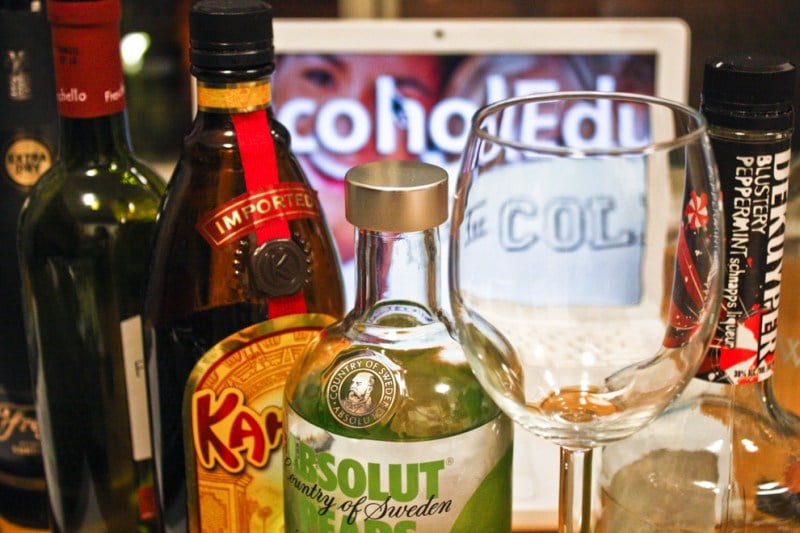Starting this fall, hard alcohol will be prohibited at “all categories of undergraduate student parties,” the University announced on Monday. According to an email from Vice Provost for Student Affairs Greg Boardman, the University is tightening is alcohol policy to decrease the consumption of hard alcohol. The updated policy also prohibits “high-volume distilled liquor containers” for undergraduate students.
While the change falls short of a full ban on hard alcohol, Boardman’s email said that the University finalized the changes in order to limit the availability and accessibility of hard alcohol. Hard alcohol — defined as more than 20 percent alcohol by volume or more than 40 proof — will be limited to bottles smaller than 750 mL (also known as a fifth) in residences and public spaces.
Undergraduate parties will be limited to serving beer and wine only. Any group or residence that has undergraduate members is subject to the new policy. Additionally, graduate groups that host parties may only have hard alcohol in mixed drinks (rather than shots, which have long been prohibited at parties) and must register their “Members” parties.
The policy change follows rumors of a ban spurred by a University meeting with resident fellows (RFs) last March, which was met by campus wide opposition. In a campus-wide referendum in April, 91.46 percent of voters opted against a hard alcohol ban, and approximately 1,720 people signed a petition against the proposal.
“We’re not necessarily looking at popularity, but rather functionality,” said Ralph Castro, director of the Office of Alcohol Policy and Education (OAPE), in an interview with The Daily.
According to Boardman, the new policy is the brainchild of a working group composed of administrators from the OAPE, Vaden Health Center and Residential Education (ResEd). The group convened early last school year to find potential solutions for binge drinking and what it identified as a social culture centered on alcohol consumption. Boardman said the group consulted with multiple voices, including undergraduates, RFs and resident assistants (RAs), while crafting the policy. Not all of them agreed with it — some RFs did not support a ban of any sort — but the administration decided to move forward.
Dean of ResEd Deborah Golder said the new alcohol policy will help to combat an alienating culture that excludes many students who choose not to drink.
“Bottom line, there needs to be a change,” Golder said. “We tend to talk about what we’re losing rather than what we’re gaining.”
According to the University’s frequently-asked-questions page, the policy will reduce the availability of hard alcohol since most retailers only sell large volumes of hard alcohol. The website explains that limits were chosen over a complete ban because the focus is on “not a total prohibition of a substance, but rather a targeted approach that limits high-risk behavior and has the backing of empirical studies on restricting the availability of and access to alcohol.”
The repercussions for policy violations remain unchanged; students failing to comply with the new changes will be referred to Residence Deans and the Office of Alcohol Policy and Education (OAPE). Multiple violations or “concerning behavior” could also result in removal from university housing or a referral to the Office of Community Standards.
Golder also sent out an email to incoming RAs asking for their cooperation in helping to enforce the new policy. While the email acknowledged some RAs may view this as a shift in their role, Golder wrote that the role of an RA “first and foremost is still to develop rapport and relationship” with residents.
“We don’t see this as policing,” Golder told The Daily. “We see it as promoting a set of norms in the house.”
Contact Ada Statler-Throckmorton at adastat ‘at’ stanford.edu or Victor Xu at vxu ‘at’ stanford.edu.
